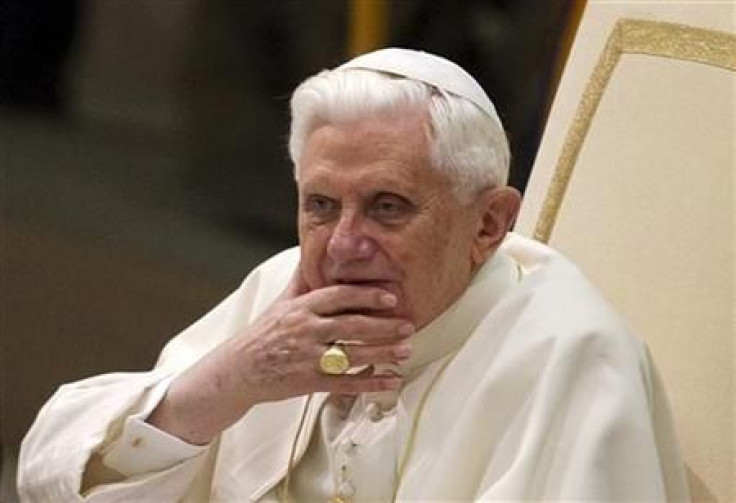Arabic For Catholics: Pope, Vatican Add New Language To Expand Reach

In an attempt to bridge a widening rift between Christianity and Islam, the Arabic language was used in an official capacity for the first time during a papal audience on Wednesday.
Pope Benedict XVI spoke Arabic himself during his weekly appearance, which he delivered to 20,000 people gathered in the Vatican’s St. Peter’s Square. His translated remark, according to the BBC, was:
“The Pope prays for all the Arabic-speaking people. May God bless you all.”
A priest then read a translation of the pope’s entire speech in Arabic. The language will now be one of several -- including French, English, Spanish, Italian and the pope’s native German -- regularly used by the Vatican to help bring the pope’s addresses to a wider audience.
This is a new development for the Catholic Church, but Arabic and Christianity were never mutually exclusive. Today, all Arabic-speaking, majority-Muslim countries -- from the Western Sahara to Oman -- have Christian populations, though in most nations they are quite small.
In some countries the representation is minuscule, as in Somalia, where a population of less than a thousand Christians must contend with the recent emergence of the Islamist terrorist group al-Shabab. Other nations have large, ancient Christian communities, such as Egypt, where an estimated 10 percent of the population -- about 8 million people -- identify as Coptic Christian.
But those populations are on the decline. According to Reuters, Christians made up 20 percent of the Middle Eastern population a century ago. Today, they make up only 5 percent and are likely to keep shrinking.
But the Catholic Church is undeterred. In an increasingly globalized world, acquiring a diverse set of language skills can come in handy for any international leader. Though his Arabic skills are limited, Pope Benedict already speaks German, French, Italian, English and Latin on a regular basis. His predecessor John Paul II was proficient in at least eight tongues.
The Vatican said it hopes that the inclusion of Arabic in official services will help spread a message of peace and tolerance to Christians, Muslims and members of other religious groups all across the Arabic-speaking world.
© Copyright IBTimes 2024. All rights reserved.












